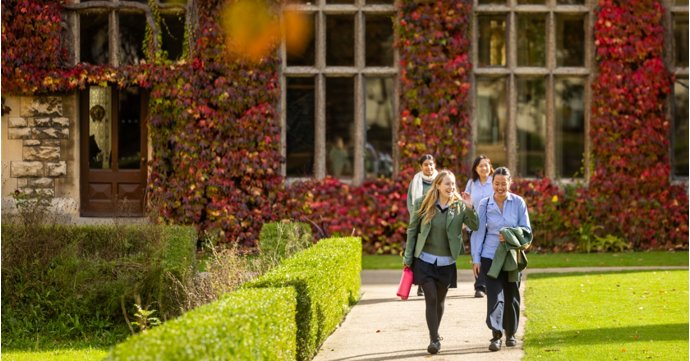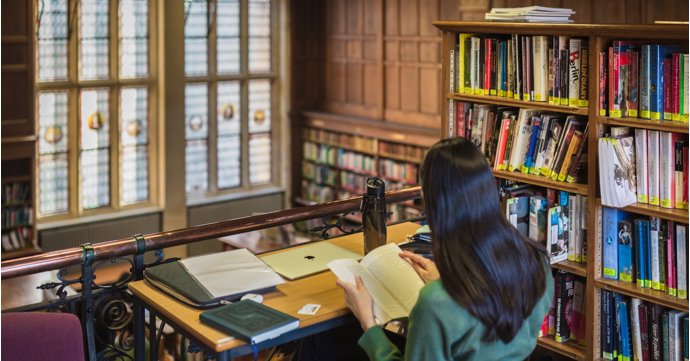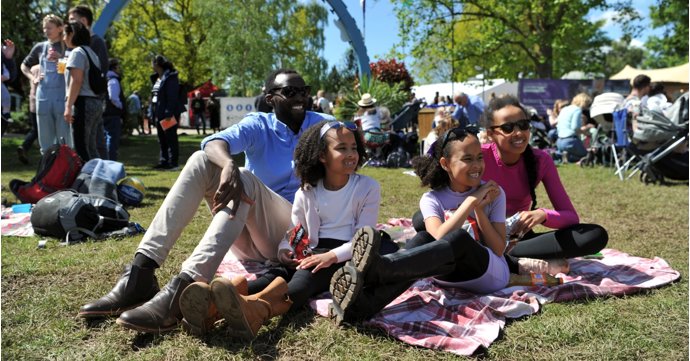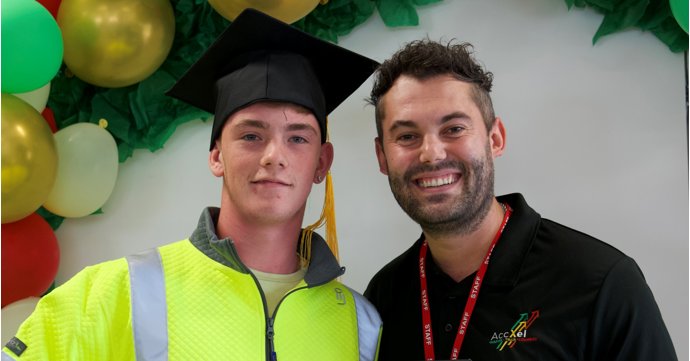Choosing where to study for Sixth Form is a vitally important decision in a student’s life – with those influential two years setting them up for further study at university or going on to start their careers.
SoGlos spoke to the Head of Sixth Form at the prestigious Cheltenham Ladies’ College to get a unique insight into how the college nurtures its Sixth Formers and prepares them for life after school – and how it makes Sixth Form study at the college more accessible to all.
About the expert – Josh Sumner from Cheltenham Ladies’ College

Josh Sumner is the Head of Sixth Form at Cheltenham Ladies’ College, where he oversees the over 300-strong Sixth Form community at the school, as well as the Professional Guidance Centre and university applications.
Josh studied the International Baccalaureate Diploma – which Cheltenham Ladies’ College offers as an alternative to A Levels – and read Modern Languages at the University of Cambridge, going on to become a French and Spanish teacher and a Head of Modern Languages, before joining Cheltenham Ladies’ College in September 2021.
For more information, visit cheltladiescollege.org.
At your previous school you were the Head of Modern Languages – what made you want to become the Head of Sixth Form at Cheltenham Ladies’ College?
I love my academic discipline and seeing students in my department grow in confidence in their linguistic ability was rewarding. Seeing them begin to appreciate the wealth of opportunities that speaking other languages can bring is immensely satisfying. However, throughout my career I have always found working with Sixth Formers particularly enjoyable as they make decisions about their next steps.
Whilst I had always been involved in higher education advice and worked as a Sixth Form tutor, this role at CLC appealed to me as it allows me to have a wider impact. Alongside this, it is a real privilege to work as a teacher of Modern Languages with the engaged and interested students we have here.
What does a typical day as Head of Sixth Form involve?
I know it’s a cliché, but I don’t really ever have a typical day. Planning our Sixth Form Easter egg hunt has taken quite a lot of time this week, for example. Each day I walk into work and don’t quite know what the day will bring other than the lessons I deliver as a Spanish teacher. Even then, a chocolate-tasting workshop for my Year 9 students or a flamenco session for my Year 12 class keeps those varied, too.
Typically, I’ll spend a lot of my time meeting with students to offer advice about their next steps and working with colleagues to ensure that we are all aware of the issues students are facing to make sure we are fully supporting them. I’ll often have lunch in one of the houses and chat with students to get an understanding of their priorities and concerns.
My evenings are quite varied too, and it’s great to see students excelling in different areas. I really enjoy seeing students on stage in school productions or music concerts or taking part in academic discussions beyond the curriculum.
What are the Sixth Form facilities like at Cheltenham Ladies’ College?
In addition to the excellent teaching spaces and facilities enjoyed by all students, Sixth Formers benefit from a Sixth Form common room where they can relax between lessons. Our Sixth Formers also make a lot of use of the College Library, where I am always impressed by their focus in their study periods and throughout the day; it is such a beautiful space.
More broadly, the school offers great facilities, and I personally feel lucky to also be able to be a member and enjoy the gym at the Health and Fitness Centre once the students have finished each evening. I also enjoy nipping into the Art Department or seeing students in the Enterprise, Engineering and Technology Department working on their artwork and designing products both during and outside lessons.
What is the school’s Sixth Form community like?
There is a great community feel in our Sixth Form and it is truly diverse. We have students from a wide range of backgrounds, from both the UK and other countries, and a mix of day and boarding students.
Our students all have very busy days and I often don’t know until I ask whether a student is a day student or a boarding student, because our day students are involved in just as many activities across the week as our boarders. Each student – whether day or boarding – is a member of a house, which gives them a place to relax and interact with others, but when in lessons or other activities, students don’t just group together with those in their house. Often students go to each other’s houses for lunch or dinner.
What is different from other schools I have worked in is how students from lower down the school all change house in Year 12. This gives them a great chance to meet new people and means that existing students and new entrants all have a similar fresh start. Established friendship groups change and develop in the Sixth Form as everyone is starting in a new house with new staff and housemates.
How else is Cheltenham Ladies’ College different from other schools you’ve worked at?
I think it’s the nature of our students. CLC students are confident, ambitious and well-rounded. I love going to a talk and seeing Year 7 students as comfortable asking a question as Year 13 students or seeing how our Sixth Formers defend their ideas in debating competitions, or how they contribute to panel discussions. I think this comes from how they are supported, in their Houses, in the classroom, and across the College to feel confident when sharing their ideas.
You also oversee the school’s Professional Guidance Centre and university applications – what does that involve?
The Professional Guidance Centre is a superb resource for CLC students and together with my colleagues, we offer support and guidance that enables them to make well-informed and emboldened decisions about their Higher Education and career choices.
There is a lot going on in the Professional Guidance Centre throughout the year, but the autumn term is particularly busy as our Year 13 students submit their university applications. I review each one of these, offering advice on students’ personal statements and course choices.
My role also involves ensuring that students in all year groups and their parents receive impartial and useful advice about course choices, higher education opportunities, work experience, and opportunities to interact with employers in the local area and beyond. It is such an exciting part of my job as the aspirations of CLC students are so varied.
What kind of universities do Cheltenham Ladies’ College Sixth Formers go on to?
When I joined CLC, I was struck by the variety of university destinations of our students. Whilst the majority of our students will secure places at top UK universities, CLC students have a global outlook and appreciate the wealth of opportunities at universities across the world.
Universities in the US are very popular, and we even have a dedicated US Adviser. However, last year students also took up places at, for example, Bocconi in Italy and Hong Kong University. Students also go to the very top creative destinations, for example Central St Martins and Chelsea College of the Arts.
Our overarching philosophy is to help students find a course that suits them at an institution that suits them, rather than limiting themselves to big names that might not be the best fit for them.
What is the International Baccalaureate and why does the school offer this as an alternative to A Levels? What are the benefits of the International Baccalaureate for students?
I took the International Baccalaureate (IB) Diploma Programme myself when I was a Sixth Former and I found it superb preparation for university study. There is a real focus on research and critical reflection in the programme. Students study six subjects, three at Higher Level and three at Standard Level, for the whole two years. Students also complete a core programme, consisting of an Extended Essay, Theory of Knowledge and the Creativity, Activity and Service Programme.
The benefits for students are great, as the IB offers real breadth and a global perspective and helps build independence. Last year we celebrated the school’s best ever IB Diploma results, our Sixth Formers achieved an average of 42.7 points, a UCAS tariff equivalent to 4 A*s at A Level.
That said, the choice between A Level and IB is a personal one – and both programmes are excellent preparation for students’ next steps.
What co-curricular activities can Sixth Formers take part in at Cheltenham Ladies’ College?
One of the best parts of my day is when I walk to my office and hear students in the Music department practising their instruments in the morning; the talent of our students is outstanding.
What struck me upon joining CLC was just how many co-curricular activities were available, and how many of these were student-led. If there isn’t a club already – and students don’t fancy Surgery Club or Criminology Society – we always look to support students in founding a new one.
Students are also involved in a wide range of sports and can make use of the facilities at the Health and Fitness Centre, including the squash courts, swimming pool and the amazing climbing wall.
Independent school fees may be out of reach for many parents, what options does CLC have for part-funded or fully funded places?
CLC offers means-tested bursaries known as Beale Awards, which offer fully or partially funded places to students seeking either boarding or day places. What we are looking for is students who will flourish here. CLC is a part of the Cheltenham community, and some of our most talented students are from the local area and come from backgrounds that some might not expect.
Why should prospective students consider coming to the school?
CLC is a fantastic community with so much going on, allowing each student to fulfil their potential. There is support for an incredible range of interests, both in terms of academics and co-curricular pursuits – and the school is in the middle of Cheltenham, meaning students can make the most of all the town as well as everything the College has to offer.


















